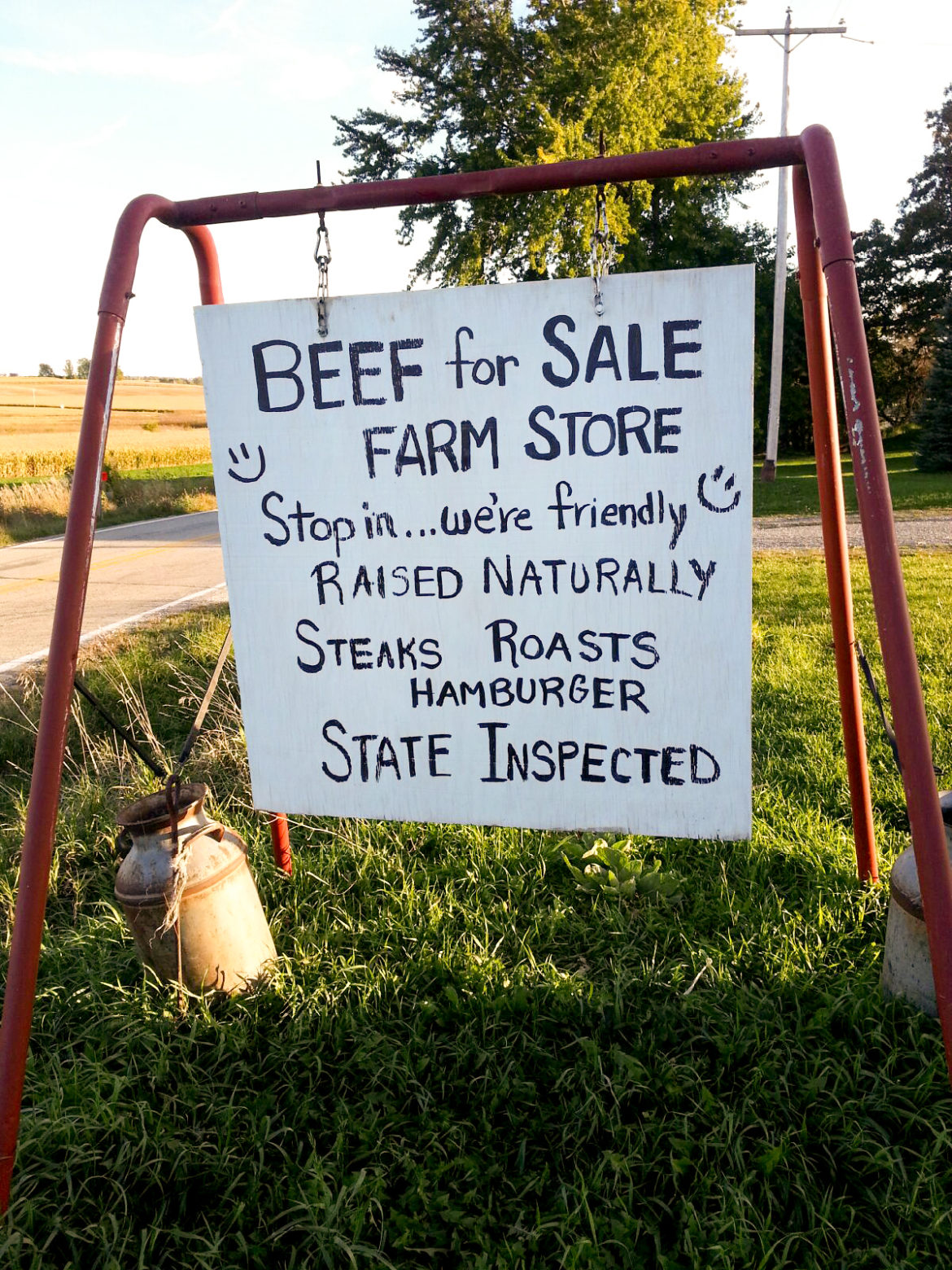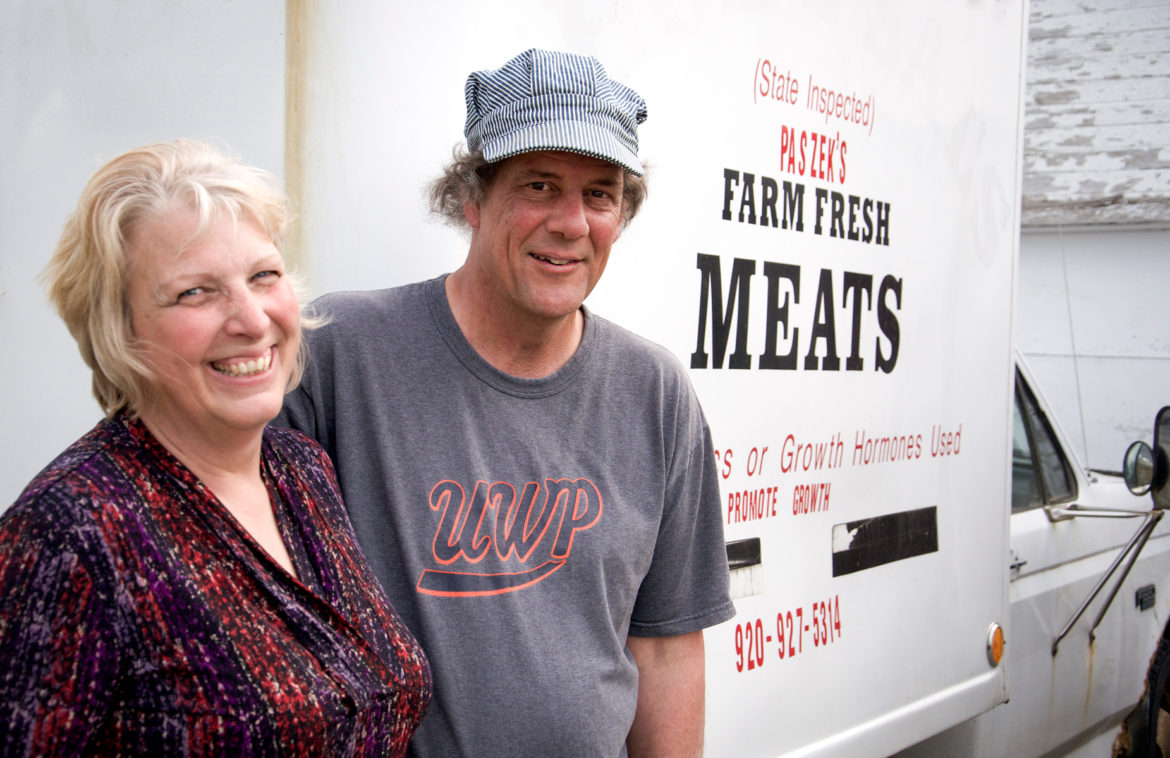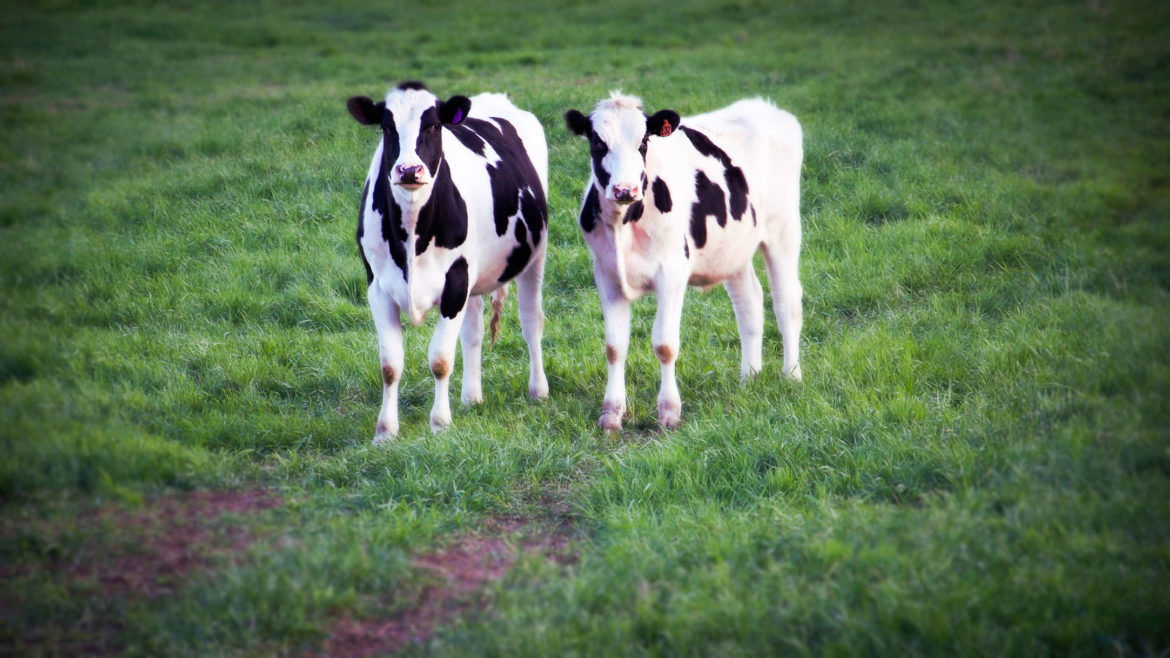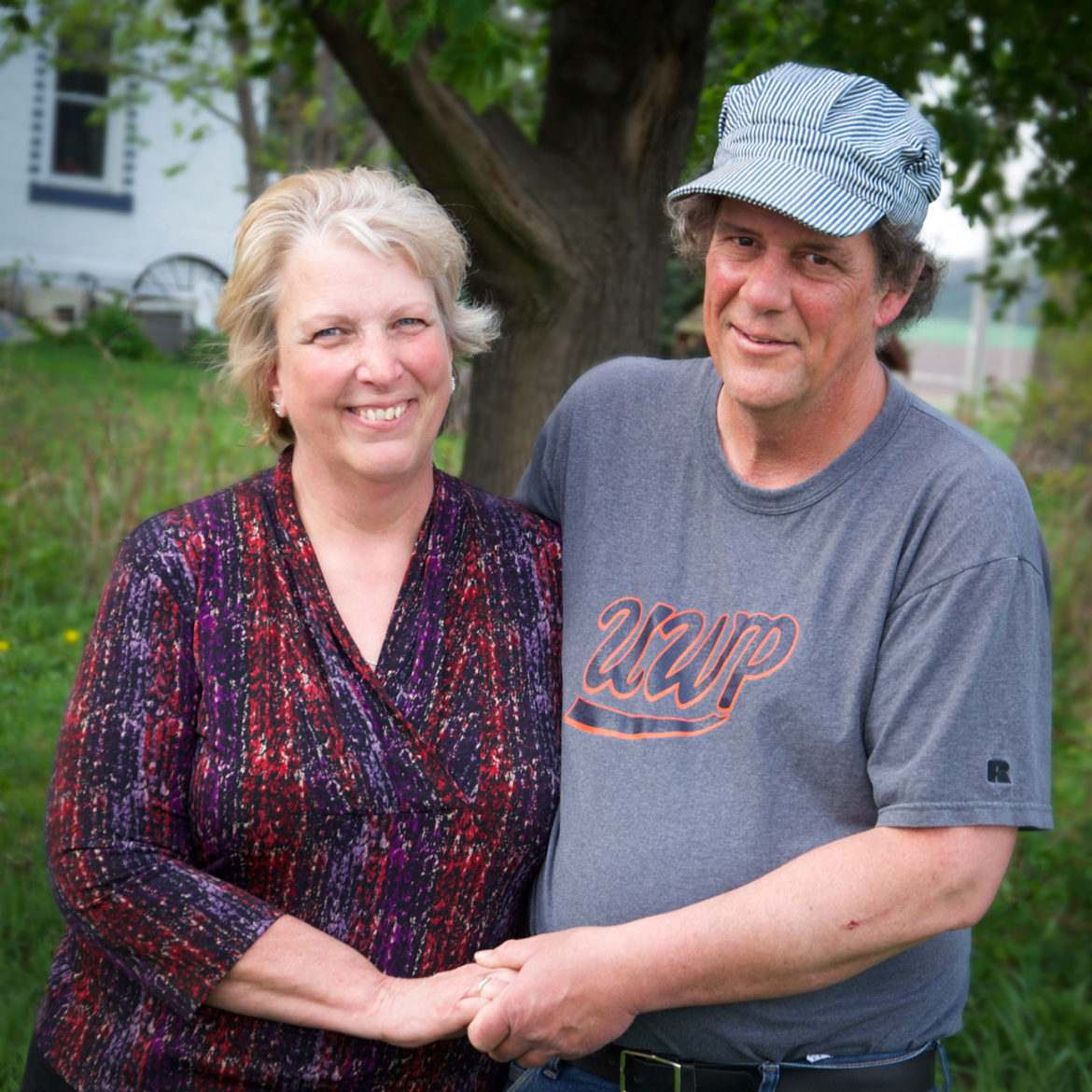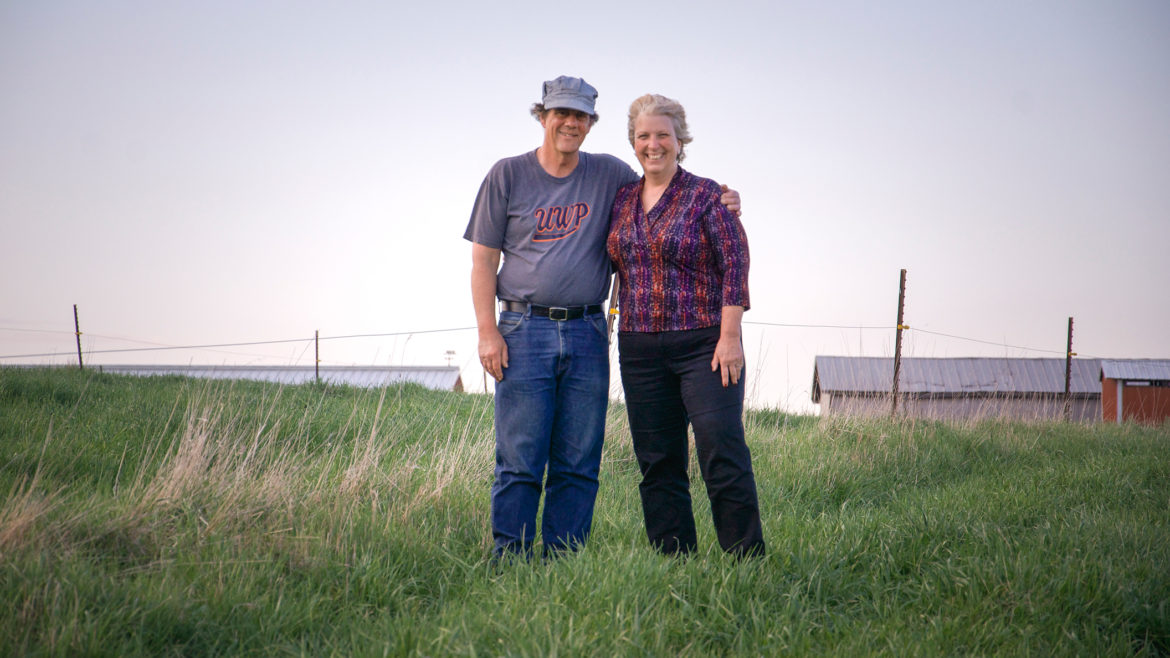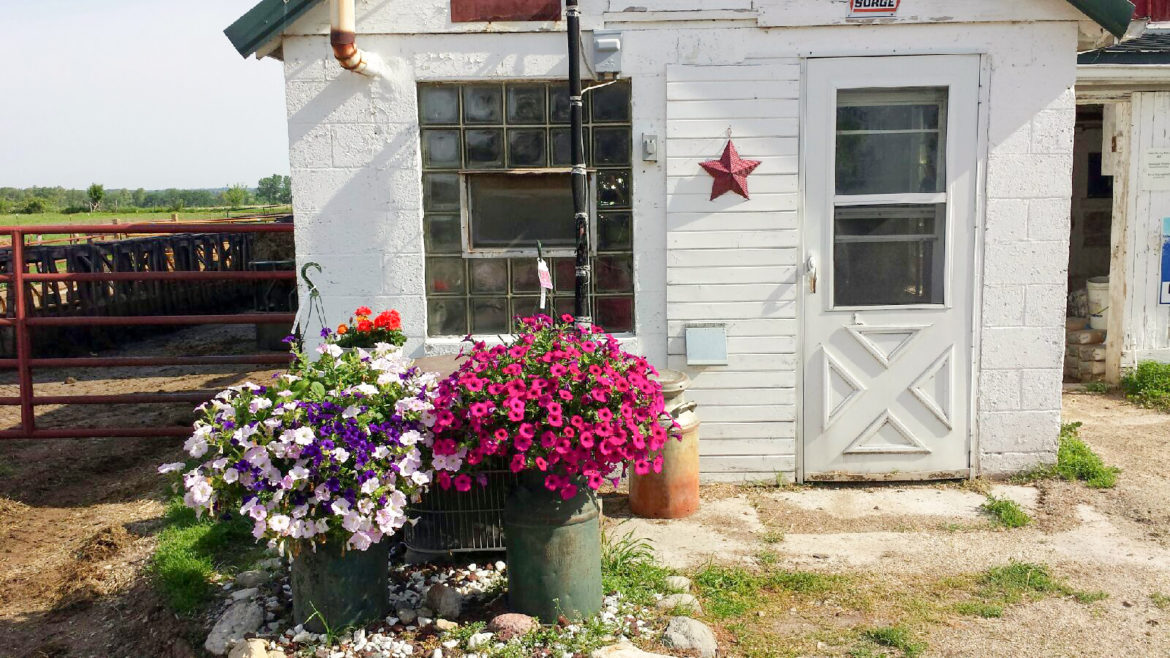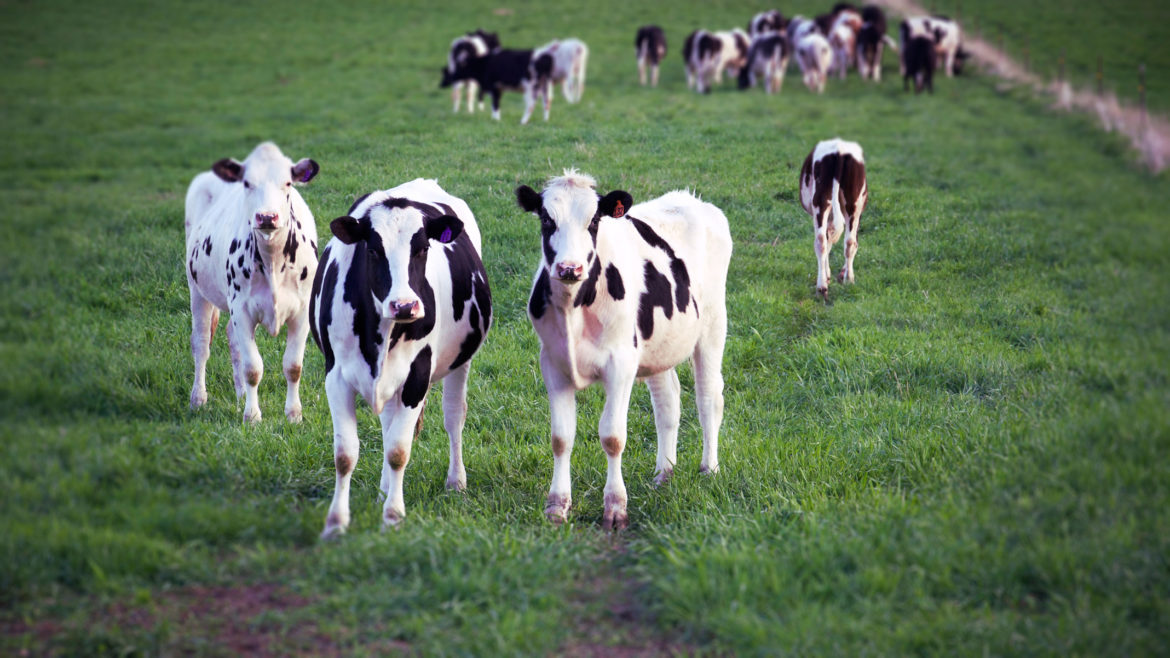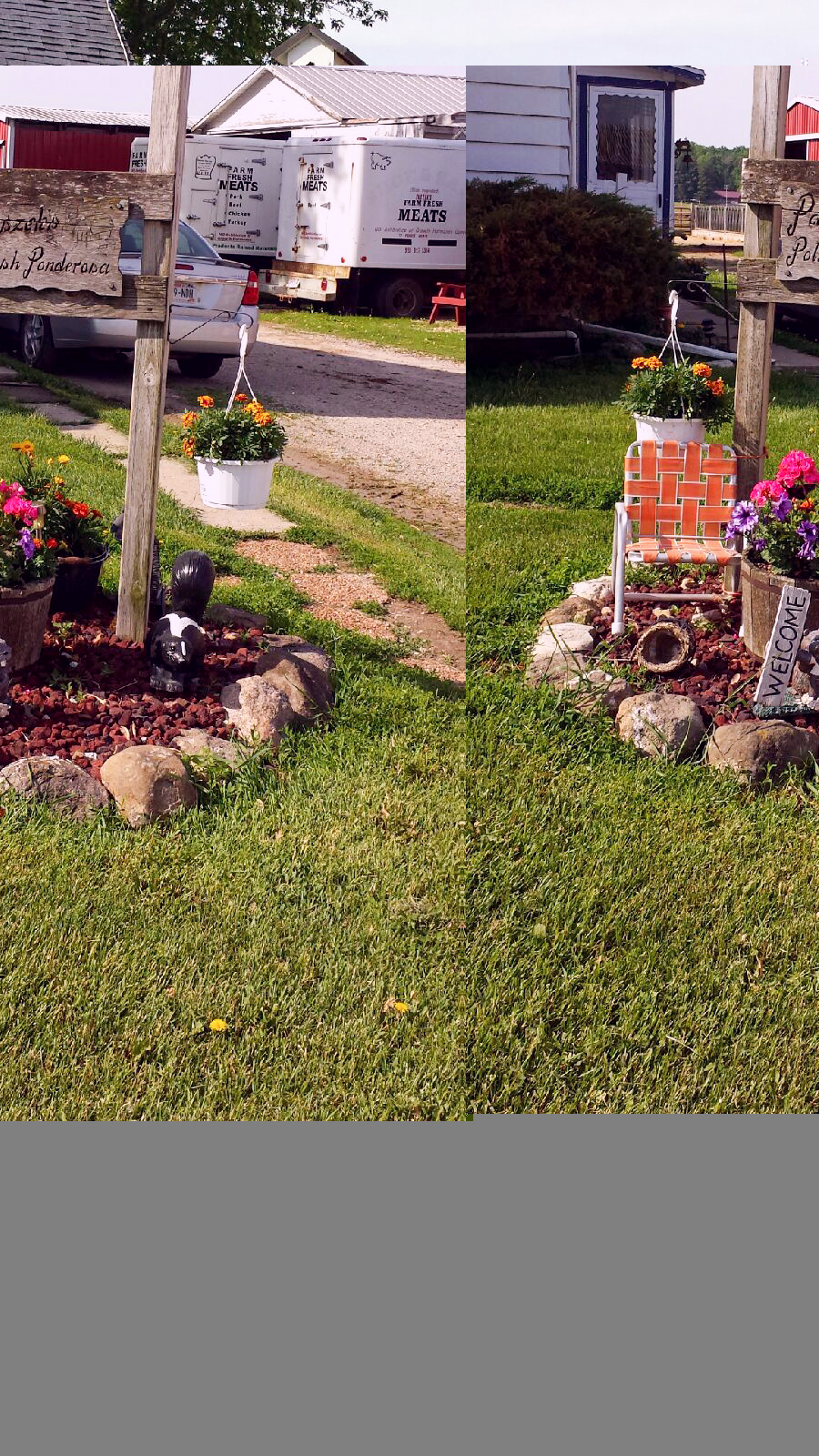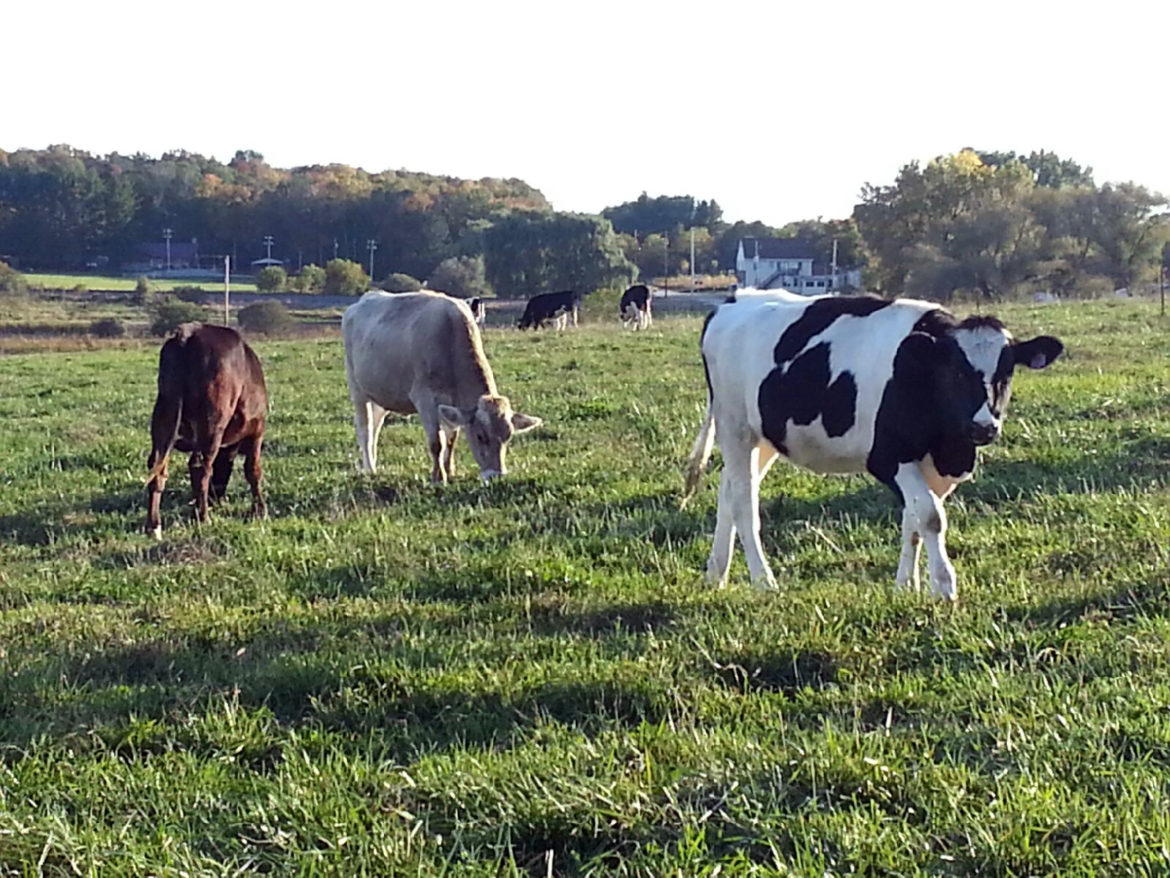By: Christine and Dennis Paszek
Our story begins when Dennis, a dairy farmer from Juneau, Wisconsin, and his lovely wife Chris began to receive AARP cards in the mail. They thought; maybe we are going to start getting too old to milk cows with the difficult labor and 80-hour weeks. Besides, their two wonderful children, ingrate children, graduated from college and left for other ventures. Who said studying would not get you anywhere! So they began to raise bull calves for steers along with the heifer calves for the dairy.
Then one day, when Dennis was feeding the calves, the lovely wife Chris informed him that his problem was that he did not talk to the calves. Dennis, pondering this out loud, wondered if he should discuss the tax code or whether the car needed new shocks with the calves. The lovely wife Chris said, “Well, the least you can do is say ‘good morning babies.’ I say ‘good morning’ to them every day!” So in every effort to appease the lovely wife, Dennis started saying, “good morning babies” to the calves, the yearlings, the two-year-old 1700-pound steers. Dennis said, “good morning” in the morning, afternoon and evening. One day Dennis said to the lovely wife Chris, we might as well call this place “Good Morning Babies Beef” because that’s all I do all day is run around here saying “good morning babies” all the time. – The rest is ready for you to prepare for your dinner table.
That’s a cute story, and it is even true! But there is a message behind that story which is that animal husbandry is our job and we take how we raise our cattle very seriously.

Our cattle are fed and checked twice a day. No letting them out to pasture or dumping a pile of feed today and we will check them next week. We learned by experience long ago that the cattle are much healthier when allowed to go out on pasture versus being in a shed and on a concrete lot their whole life. Even in winter, when there is no pasture, they are provided with large lots to get out and exercise, run around, lay in the sun on a nice day. Yet they all are provided with shelter to get out of the inclement weather.
We try to provide an eco-friendly environment on our farm. The pasture system works well in this regard. Our land is rather hilly and the grass virtually eliminates erosion. Then the cows not only eat the grass but we can use their manure for fertilizer, so we do not have to rely on commercial fertilizers. Learning about and implementing these kinds of sustainable practices is what makes farming fun. For example, we have permanent buffer strips for controlling ditch erosion and to provide wildlife habitat. We get a lot of satisfaction out of using the land to produce food and yet seeing and providing for wildlife at the same time!
What they are fed is as important to us as how they are handled. Cows are vegetarians so other than milk when they are calves, all their feed is vegetable based. We do not feed them any animal by-products. We also believe in letting them grow at their own pace. So we do not use any growth hormones, growth antibiotics, steroids or muscle enhancers. We believe in them having a high forage diet of grass, hay and silage depending on the season. This provides optimal stomach function (they have 4!) and a healthy cow. Just as we believe in not artificially enhancing their growth, we strive to provide them with a balanced diet. This means we need to feed a comparatively low level of grain depending upon weather and pasture conditions. This low level of grain feeding has the added benefit of providing our meat with enough marbling to keep things juicy without producing an overly fatty cow.

Which brings us to the next reason we do this: the consumer. As dairy farmers, we basically sold a commodity – raw milk to a company that processed it and sold it to the consumer. The joy of selling meat direct is that we get to provide food for people to eat and get to meet those customers face to face. The farm-consumer connection is direct. I think this is the biggest benefit to the consumer when they choose to buy local and directly from the farmer. They can meet producers and even tour their farms and find those that share their same philosophy about how their food is raised.
So come and see us on the farm or at the farmers market, we would love to meet you.

